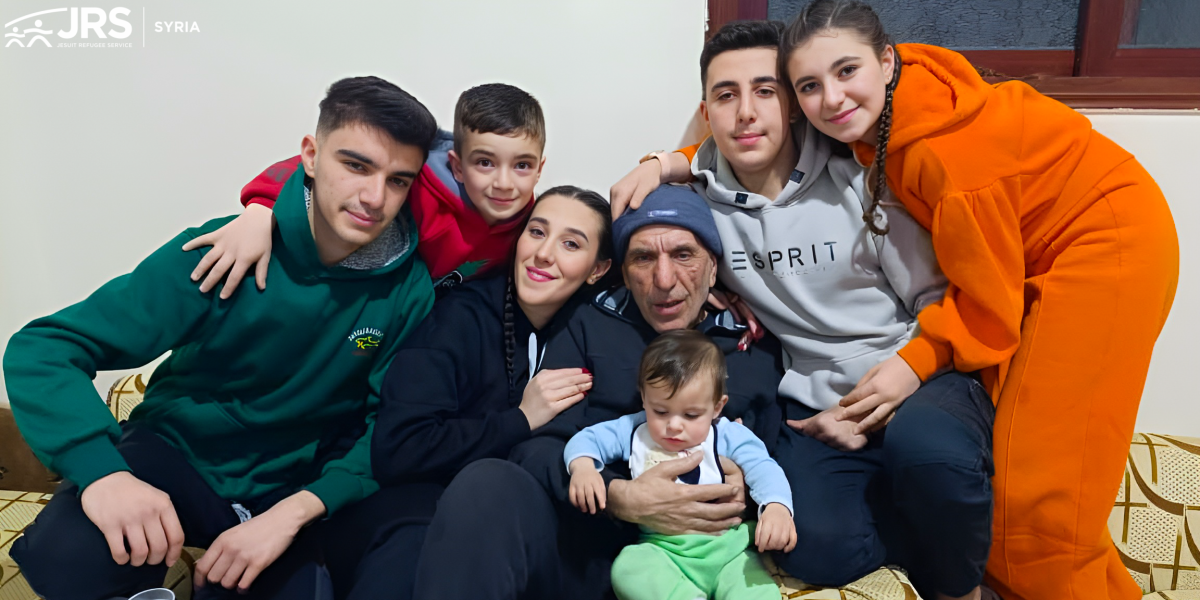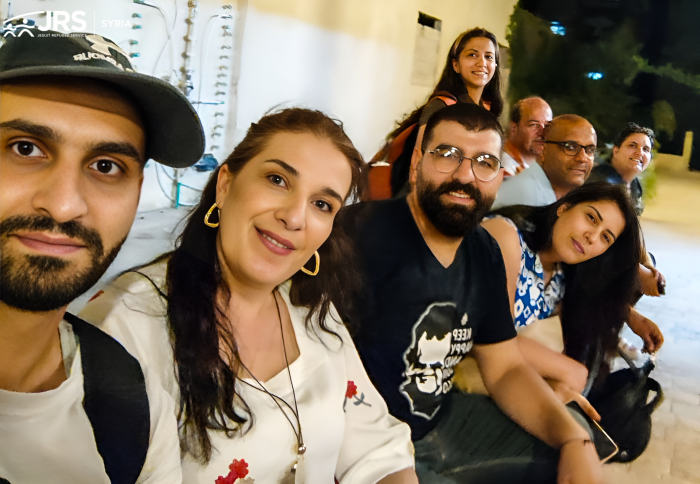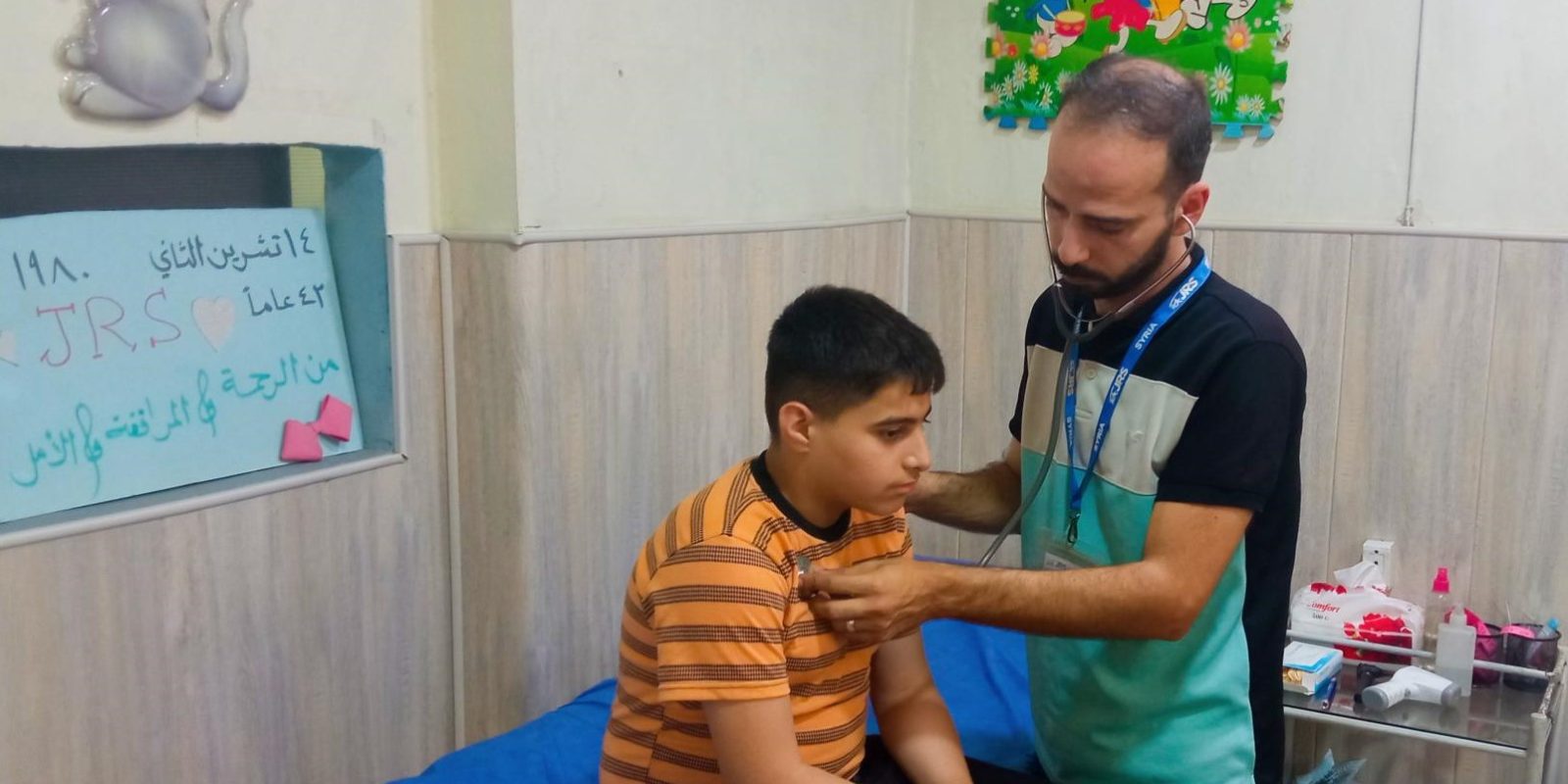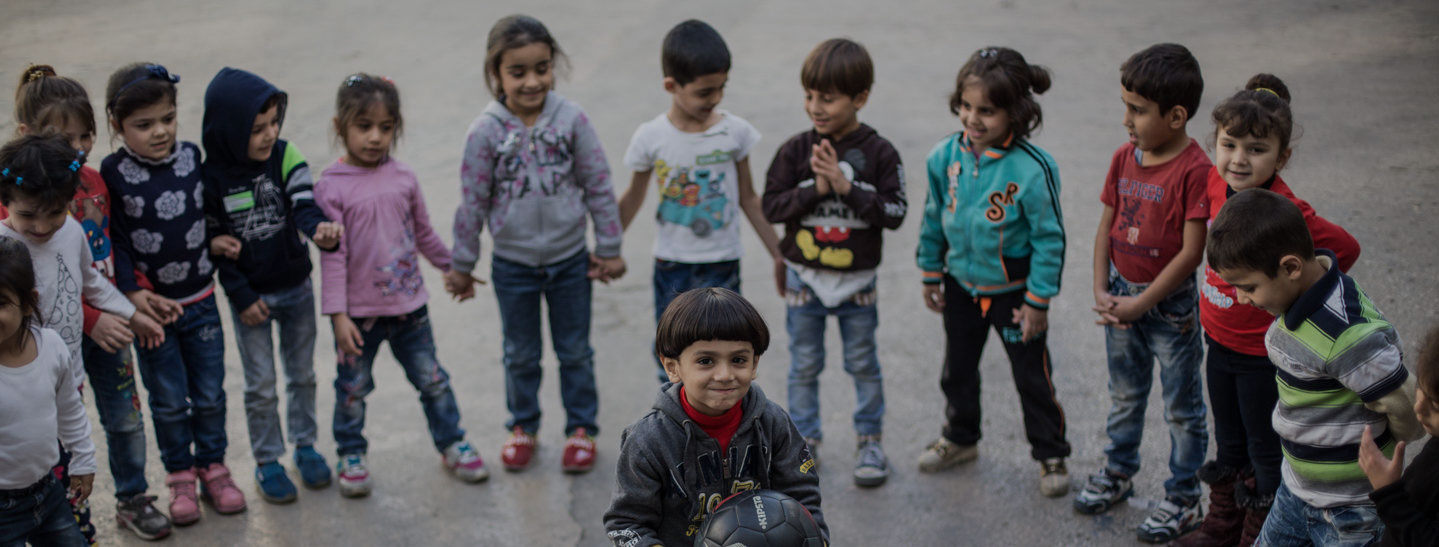Imprisonment, Loss, and Hope: Nora’s Story of Resilience
31 January 2025

Nora was just ten when her father was taken to prison. Twelve years passed before she heard any news about him. Later, her husband was also detained and killed, leaving her alone with three children. Becoming a volunteer with the Jesuit Refugee Service (JRS) helped her find her own way to resilience—until the day good news finally arrived.
Nora first experienced loss 35 years ago as a child. She grew up in Qusayr, a town in Homs, Syria. One day, she came home and found that her father had disappeared. For over a decade, her family lived in uncertainty, often assuming he had died. When her classmates asked about him, she could only respond with tears, while her mother remained silent, knowing that even speaking about his fate could put them all in danger.
With no financial support, her mother worked tirelessly to provide for the family. Then, after 12 years of silence, a glimmer of hope appeared—her father was still alive. But the joy was short-lived.
“My father was in prison. He was unjustly sentenced to 15 years, and when he attempted to defend himself in a summary military trial, his sentence was extended to life imprisonment,” Nora recalls. “In Syria, a life sentence usually means 22 years, but he remained imprisoned for 35 years, with rare visits allowed.”
Life moved forward in his absence. Nora ached for his presence at every life-changing moment, especially on her wedding day. As the years passed, she built a stable life in Qusayr, Homs, with her husband, a schoolteacher. They also owned a small shop selling electrical supplies, while Nora took care of their three children.
When the war broke out in 2011, everything fell apart. Violence forced them to flee to Damascus, where they lived in a small, overcrowded apartment shared with five other families for three years. In 2014, as the army took control of Qusayr, Nora hoped to rebuild her life. But just days before returning, her husband was arrested for refusing to take up arms.
This time, Nora didn’t have to wait years like she did with her father. The worst happened much faster. On the thirty-fifth day of his detention, she received the news she could not believe—he had been killed. “That was the hardest day of my life,” she remembers. “I lost my partner, and my children became orphans overnight. My eldest daughter was only seven years old. I felt like every door in life had shut before me. I was completely alone.”
A Light in the Darkness
In the depths of her grief, she found a glimmer of hope at Beit Alberto, the JRS refugee center in Jaramana, Damascus. What started as volunteering soon led her to join the outreach team—her first steps toward rebuilding her life.
Mutaz Al Aia, Outreach Team Leader, recalls, “When I first met Nora, she was fragile. But beneath all the pain, there was an incredible strength. The more she helped displaced families, the more her resilience grew. What moved me most was her ability to support families—some of whom might have been involved, directly or indirectly, in her own displacement. She chose compassion over resentment.”
Her colleague, Amani Asaad, adds, “She was angry and afraid, but through her work with JRS, she found her strength. We realized that we couldn’t support others if we didn’t support each other. Nora became like a sister to me.”

For Nora, working with JRS was a turning point. With the stability and support provided by her job, she was able to find a home and enroll her children in school, ensuring they received the education they deserved. “This place gave me love, safety, and trust,” she says.
Though the pain of her children’s questions about their father’s fate never faded, she found the strength to move forward. “She worked tirelessly,” Mutaz reflects. “Eight hours a day, then back home to care for her children. Some days, she broke down in tears. I never tried to sugarcoat things for her—I didn’t just comfort her; I encouraged her to think with her mind as well, not only with her heart. And day by day, she grew stronger.”
The Road to Healing
Nora attended workshops with the Jesuit Refugee Service (JRS) and discovered the power of teamwork. “I am still in the middle of my journey,” she says. “My children are growing, and their dreams are my motivation to keep going.”
Today, she is an essential member of the JRS outreach team in Syria. “Nora has a rare gift,” Mutaz observes. “She builds trust easily with displaced families, making them feel safe enough to share their stories.”
Amani adds, “Her transformation wasn’t a coincidence; it was the result of hard work and perseverance. She carried the weight of her children’s questions about their father, but she found solace in helping others. It was as if their struggles gave her the strength to heal.”
On some visits, families were hesitant to speak, but with Nora, barriers crumbled. “She could see beyond what others noticed—she saw deeper than the surface,” Amani says.
A New Beginning
Life’s hardships did not end, but Nora grew stronger. Her eldest daughter is now in university, her son is preparing for his high school exams, and her youngest continues his studies. And then, something she never expected happened.
After 35 years of unjust imprisonment, and following the fall of the Assad regime, the news Nora had never dared to hope for finally arrived—her father was free. “Thank God,” he whispered. “I was wronged, but I never wronged anyone.”
Nora wasn’t surprised that he chose not to feel anger or seek revenge. “He always taught us never to harm others,” she says. “I won’t burden him with the pain of my past. Our family wants to close the chapter of sorrow.” Even now, it feels unreal. “Sometimes, I hear his voice and rush to check if he’s really there,” she confesses.
Note: “Nora” is a pseudonym. The real name has been changed to protect the individual’s privacy.


